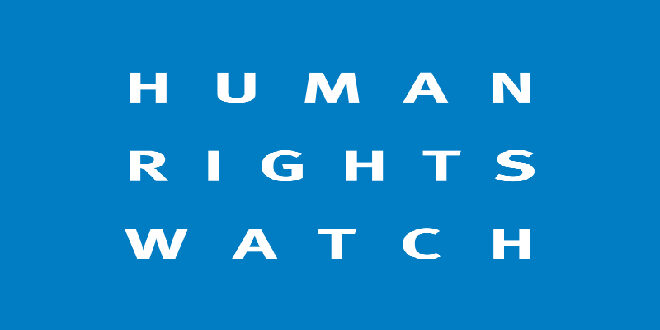Beirut, SANA- Sanctions imposed by the United States, European Union, the United Kingdom, and other countries are hindering the restoration of essential services in Syria, Human Rights Watch said Tuesday.
Those sanctions, imposed on the deposed regime of al-Assad, remain in place despite its collapse and lack clear, measurable conditions for removal.
They are hindering reconstruction efforts and exacerbating the suffering of millions of Syrians struggling to access critical rights, including to electricity and an adequate standard of living.
“Syria is in desperate need of reconstruction and Syrians are struggling to survive,” said Hiba Zayadin, senior Syria researcher at Human Rights Watch.
“With the collapse of the former regime, broad sanctions now stand as a major obstacle to restoring essential services such as health care, water, electricity, and education.” Zaydan added.
Thirteen years of conflict and displacement have left much of Syria’s infrastructure in ruins, with entire towns uninhabitable, schools, hospitals, roads, water facilities and electrical grids damaged, public services barely functioning, and the economy in freefall.
Over 90 percent of Syrians live below the poverty line, with at least 13 million—more than half the population—unable to access or afford enough quality food, and at least 16.5 million Syrians across Syria requiring some form of humanitarian aid to meet their basic needs.
Human Rights Watch previously found that broad sanctions hindered aid delivery in Syria, despite humanitarian exemptions, and especially after the February 2023 earthquakes in northern Syria.
Sanctioning entities should prioritize the well-being of Syrian civilians by lifting sanctions that hinder access to basic rights. This includes restoring Syria’s access to global financial systems, ending trade restrictions on essential goods, addressing energy sanctions to ensure access to fuel and electricity, and providing clear legal assurances to financial institutions and businesses to mitigate the chilling effect of over compliance, Human Rights Watch said.
Syria has been under international sanctions for over 45 years. Since 2011, the United States, the EU, the UK, and others have imposed more severe sanctions on the deposed Syrian government, its officials, and its entities in response to the previous government’s war crimes and human rights violations. These sanctions include targeted asset freezes and travel bans, as well as broader restrictions on trade, financial transactions, and key industries.
Since the fall of the Assad government, the United States and European countries have made limited adjustments to their sanctions policies. In January 2025, the United States authorized limited energy and remittance-related transactions in Syria, while the EU proposed a conditional plan to ease sanctions, and the UK announced forthcoming amendments for parliamentary debate.
Nisreen Othman/ Noura
 Syrian Arab News Agency S A N A
Syrian Arab News Agency S A N A

